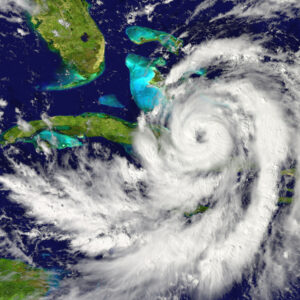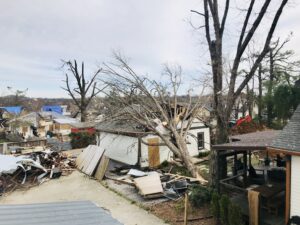Property Damage Lawyers in Florida

The Florida property damage lawyers in Florida at Smith & Vanture may be able to help you if your property or home was damaged in a hurricane, storm, or other accident. The property damage claims process can sometimes be incredibly complicated. If your property was damaged due to multiple causes, like flooding, water damage, wind-driven rain, or other factors, your insurance adjuster may need to differentiate between covered and non-covered types of damage. The value of your claim will also depend largely on the type of coverage you have. If you have actual cash value insurance coverage, your insurance adjuster will take depreciation into account, while if you have replacement cost insurance, your insurance adjuster will pay for damages minus your deductible. If the settlement your insurance company is offering doesn’t cover your repairs, or if you aren’t sure about the type of coverage you have or whether your property damage insurance coverage is being properly represented to you by your insurance adjuster, consider speaking to the property damage lawyers in Florida at Smith & Vanture today.
Most people don’t have the time to read the fine print of their insurance policy. If your home or property was damaged in a storm, your focus is likely on rebuilding and moving forward. The property damage lawyers in Florida at Smith & Vanture understand the unique challenges homeowners and business owners face when making an insurance claim after a hurricane, storm, natural disaster, or theft. We are here to help you appeal a denied property damage claim or negotiate with adjusters if you believe your property damage claim is too low.
Types of Property Damage Claims in Florida
There are several types of property damage claims you may be able to make after a hurricane, natural disaster, or other weather event. The type of property damage claims you’ll be able to make will depend on the type of property you own and the type of insurance coverage you have purchased. Here are four main types of property damage claims you may be able to make after a storm, disaster, or flood:
- Homeowner’s Insurance Claims. Homeowner’s insurance covers damage to residential property. Most standard homeowner’s insurance policies don’t cover damages due to flooding, but you may be covered for flood damage if you purchased a separate policy. Homeowner’s insurance coverage won’t cover losses due to natural wear and tear or due to neglect. It is important to maintain your home, so that if a disaster strikes, you’ll be able to make a claim. If your home was damaged in a storm, you may also have to take steps to secure your home from sustaining further damage, like turning off water and electricity, putting furniture and undamaged items in storage, putting a tarp on your roof, or boarding up windows. The two main types of homeowner’s insurance policies include actual cash value insurance and replacement cost insurance. With replacement cost insurance your insurance company will be liable for paying the full cost of repairs minus your deductible, while with actual cash value insurance, your adjuster will take into account depreciation (the age of the item that needs repairing or replacement). Understanding how each of these policies can affect the complexity and value of your claim can be difficult, and the average person doesn’t always understand how depreciation is taken into account. The property damage lawyers in Florida at Smith & Vanture are here to help.
- Commercial Property Claims. If you own a business or commercial property, commercial property insurance can protect your business or commercial property in the event of a natural disaster or storm, theft, or vandalism. For example, property damage coverage will typically cover repairs for wind-driven rain, debris, roof damage, fire, and water damage, but commercial property insurance may have added provisions to cover you for business interruption costs due to the damaged property. Commercial property insurance may also include coverage for the expensive equipment located inside your commercial property. Coverage may also include protection for other assets like accounting records and other documents, inventory, signs, and other items essential for the running of your business. The value of your commercial property damage claim will depend on whether you paid for replacement cost or actual cash value insurance, and the type of coverage you purchased.
- Auto Damage Claims. Homeowner’s insurance coverage won’t cover hail damage, flood damage, or water damage to your vehicle during a storm. If a tree on your property falls on your car, your homeowner’s insurance coverage typically will not cover this damage to your car, though it will cover damage to your home and property. If you have comprehensive auto insurance coverage, you may be able to make a claim to cover damage to your car.
- Personal Property Claims. Homeowner’s insurance typically covers for losses for damaged personal property. If a hurricane strikes, damaging the roof of your house, and water gets into your home damaging your bed, furniture, and electronics, you may be able to make a claim to replace damaged personal property. If a thief enters your home and steals items inside it, you may be able to make a claim for this stolen property. Yet, you may not always receive the full value of damaged or stolen property when you make a claim. The value of your settlement will depend on whether you purchased actual cash value insurance or replacement cost insurance. If you purchased replacement cost insurance, your insurance company will need to replace the item at its full current value minus your deductible. For example, if you lost a computer, or couch, or television, and if you have replacement cost insurance, your insurance company should be able to give you money for a new computer of similar quality, a couch of similar quality, and a new television of similar quality to the one lost. If you purchased actual cash value insurance, then your adjuster can consider depreciation when considering your settlement amount. A new computer is obviously worth more than one that is three years old, and new furniture is worth more than furniture that’s ten years old. With actual cash value insurance, your adjuster will consider depreciation. Issues can arise with actual cash value claims when homeowners making a claim disagree with the amount of depreciation an adjuster wants to make. Sometimes insurance adjusters use formulas, algorithms, or estimates to estimate the value of a settlement. These numbers may not always reflect current market conditions and values. For example, if a bike was stolen from your home or damaged in a storm, and you want to replace the bike with a used one, in some situations, it can cost even more to replace an antique or specialty bike if it is no longer in production than to buy a new one of similar quality. This can create unique situations when making an insurance claim. Another factor to consider is the fact that while most homeowner’s insurance policies will cover most items in a home, homeowner’s insurance may not cover expensive items like fine art, expensive jewelry, antiques, or other high-value items. These items may require a special rider or special documentation in order to be covered.
 These are some of the property damage coverages available. Each type of coverage may offer different benefits and types of coverage depending on your loss. At the end of the day, after a storm, theft, or other disaster, insurance adjusters are often working to protect their bottom lines and to reduce their liability. If you don’t understand the fine print of your policy or the exact nature of your insurance policy, you could find yourself not receiving the proper settlement you may deserve under the law. The property damage claims lawyers in Florida at Smith & Vanture are here to help. Our property damage insurance claims lawyers in Florida can review your policy, estimate the value of your claim, and fight to help you appeal an underpaid or undervalued claim. Contact us today to learn more.
These are some of the property damage coverages available. Each type of coverage may offer different benefits and types of coverage depending on your loss. At the end of the day, after a storm, theft, or other disaster, insurance adjusters are often working to protect their bottom lines and to reduce their liability. If you don’t understand the fine print of your policy or the exact nature of your insurance policy, you could find yourself not receiving the proper settlement you may deserve under the law. The property damage claims lawyers in Florida at Smith & Vanture are here to help. Our property damage insurance claims lawyers in Florida can review your policy, estimate the value of your claim, and fight to help you appeal an underpaid or undervalued claim. Contact us today to learn more.
Causes of Damages Covered Under Property Damage Claims in Florida
The causes of damage can affect whether you can make a property damage claim in Florida. Covered damages under most standard homeowner’s insurance policies and commercial insurance policies will include:
- Wind damage
- Water damage (but not flood damage)
- Hail damage
- Tornado damage
- Theft
- Cars colliding into your property or fencing
- Hurricane damage
Many homeowner’s insurance policies explicitly exclude certain types of damages. These exclusions can include:
- Flood damage
- Earthquake damage
- Pests
- High value items not specially covered
If your homeowner’s insurance claim has been denied or underpaid, you may have the right to fight back or appeal your denial. Your property damage insurance coverage may pay for costs to repair or replace damaged items, repair the interior or exterior of your damaged home, pay for a complete rebuild if your home was completely damaged, pay to replace the cost of damaged, stolen, or lost items in your home, and pay for meals, lodging, and other costs if you cannot live in your home while it is being repaired.
If you have questions about your rights after a property damage claim has been made, or if you aren’t sure if the property damage settlement being offered is sufficient to cover your losses, reach out to the property damage lawyers in Florida at Smith & Vanture today. Our attorneys are here to help.
Contact a Property Damage Lawyer in Florida
If your property was damaged due to a storm, natural disaster, theft, or other cause, you may be entitled to receive compensation to repair or replace property if you have insurance coverage. Property damage insurance claims can sometimes get complicated. If your property was damaged, and you don’t believe the settlement you are receiving will cover your losses and repair costs, reach out to the property damage lawyers in Florida at Smith & Vanture today. Our property damage claims lawyers in Florida work closely with homeowners and business owners to help them receive the settlement they may deserve under the law.
